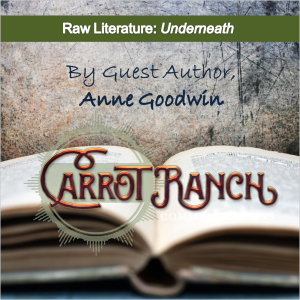| After being turned down by multiple publishers and agents, I was pleasantly surprised at how well my debut novel, Sugar and Snails, was received, even going on to be shortlisted for the Polari First Book Prize. But you can’t take anything for granted in this business. Two years later, my second novel, Underneath, brought me, on the eve of publication, my first one-star review on Goodreads (and a little later on Amazon). Ouch! Someone has looked at my baby, declared it ugly and wants the world to know. |
Of course, I knew it would get me eventually. The more your writing is out there, the more chance of it eliciting a range of different responses. Of course, I’ve read about other people’s experiences and was – sort of – prepared. I knew, for example, it’s never a good idea to engage with the reviewer: even a polite Thanks for reading and sorry you felt it wasted your time could be perceived as an attack. I’d read the reassurance that a one-star proves not all your reviews are written by your granny. But authors have mixed opinions on whether to engage with the reviewer in your head. Whether to scour the review for what you can learn for next time or to safeguard your self-esteem and blithely let it go.
So I was ready with my psychological armour. What I wasn’t prepared for, and took me by surprise, was that my predominant feeling would be relief. It wasn’t only meeting a milestone on my authorial journey, but the realisation that my words could not please everyone. Of course, I knew that intellectually. But it’s a lesson I have to keep on learning in my heart. So the one-star review was a gift. If you’re a people pleaser, the same might be true for you.
I’m assuming, like mine, your book has been through critiques, edits and proofreading before reaching readers’ hands. I’m assuming, whether self or traditionally published, you haven’t let it out there until it’s the best it can possibly be. But still not everyone is going to like it. The world would be a boring place if we all thought the same.
But some of us can’t help hoping for the impossible: that everyone will like us and our words. If we began life emotionally neglected there’ll be a part of us that knows, however illogical that might be, that our very survival is based on not displeasing others, because once that was actually the case. We’ll hide the parts of ourselves we fear others might consider unattractive and show the world a false self.
| When I wrote my essay for the Raw Literature series about writing being brave and subversive, I had no conscious sense of preparing myself for the one-star review. But I meant every word about the importance of airing thoughts and feelings that have been silenced in the past. I don’t want to be a writer who could be described as “safe” or “bland”. To me, the one-star review is confirmation I’m not. |
I don’t want to suggest that writers shouldn’t ever try to please readers, or that my one-star reviewer’s judgement was wrong (although I’m free to think that in the privacy of my head). But it seems to me that, particularly for those of us who can’t make a living from it, it would be self-defeating to start from the premise of pleasing others at the expense of ourselves. I never expect to have the confidence, foolhardiness or bravery to be indifferent to others’ opinions, but the one-star review is a useful reminder that we make up stories not only to entertain but to reflect our personal truths.
PS. If you’ve been hurt by a negative review, you might find this post by Jane Friedman on toxic feedback uplifting.
PPS. If you’ve read either of my novels and are still considering posting a review, I leave you with these thoughts:
- Thanks, much appreciated.
- Obviously you’ll rate it how you think fit, but a one-star review isn’t the only, or even the best, gift you can give an author.
























 RSS Feed
RSS Feed





















